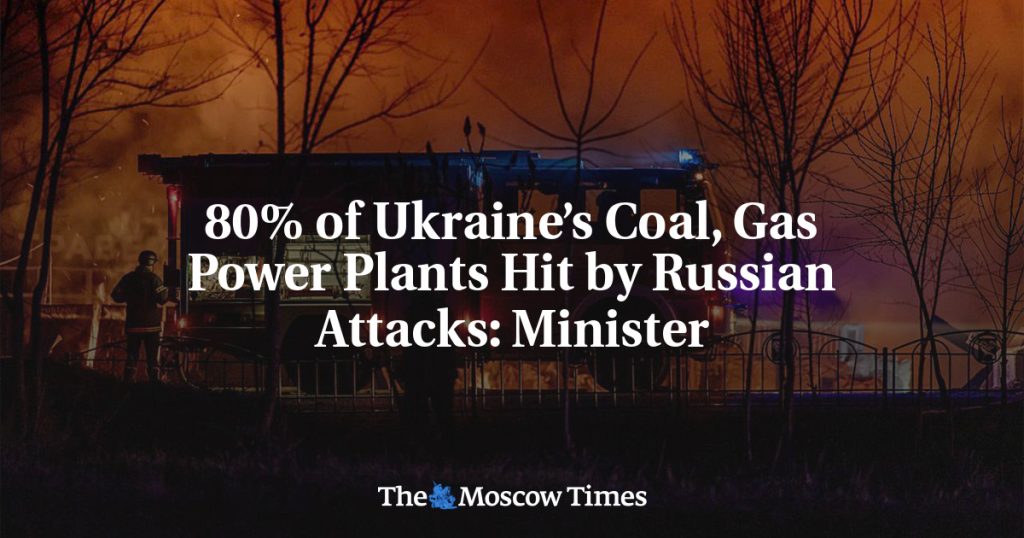The war in Ukraine has escalated significantly in recent weeks, with Russia launching heavy attacks on the country’s power plants. Ukrainian Energy Minister German Galushchenko reported that up to 80% of Ukraine’s conventional power plants and half of its hydroelectric plants have been hit in the heaviest attacks since the war began. These strikes have caused major blackouts in the northeastern city of Kharkiv. Galushchenko described the attacks as the largest on Ukraine’s energy sector since the start of the war.
Prior to the invasion, Ukraine’s power generation was relatively balanced between coal, natural gas, and nuclear energy, with a smaller percentage of hydroelectric power. However, with Russia’s ongoing attacks on power infrastructure, the country’s energy supply has been severely compromised. The Zaporizhzhia nuclear power station, Ukraine’s largest, has been under Russian control since the beginning of the conflict. Galushchenko pointed out that the scale and impact of the recent attacks are much greater than earlier incidents during the winter of 2022 to 2023 when millions of Ukrainians suffered in freezing temperatures without electricity and heating.
Galushchenko noted that the Russians have modified their weapons and tactics, using Iranian-style explosive drones and missiles that cause more damage per attack. This change in strategy has led to a greater impact on Ukraine’s energy infrastructure and has resulted in widespread blackouts across the country. The minister emphasized the severity of the situation, stating that the attacks on Ukraine’s power plants have significantly disrupted the country’s electricity supply and posed a serious threat to its energy security.
The ongoing attacks on Ukraine’s power grid have had devastating consequences for the country’s energy sector and its population. With up to 80% of thermal generation and more than half of hydro generation targeted by Russian forces, Ukraine is facing a critical energy crisis. The disruptions caused by the attacks have limited access to electricity for millions of Ukrainians and have created challenges for essential services such as heating and transportation. The situation is likely to worsen as long as the attacks continue and the country’s energy infrastructure remains vulnerable to further strikes.
The attacks on Ukraine’s power plants represent a significant escalation in the conflict between Russia and Ukraine. By targeting critical infrastructure, such as power generation facilities, Russia has intensified its military campaign and inflicted widespread damage on the country’s energy sector. The use of advanced weapons and tactics by Russian forces has increased the effectiveness of the attacks and raised concerns about the potential for further destruction. The international community has condemned Russia’s actions and called for an immediate end to the hostilities to prevent further suffering and hardship for the people of Ukraine.
In conclusion, the ongoing attacks on Ukraine’s power plants by Russian forces have had a severe impact on the country’s energy sector, causing major disruptions to its electricity supply and posing a significant threat to its energy security. The use of advanced weapons and tactics by Russia has increased the effectiveness of the attacks and raised concerns about the potential for further destruction. The situation is likely to worsen if the attacks continue, leading to more widespread blackouts and hardships for the Ukrainian population. The international community must act decisively to support Ukraine and bring an end to the hostilities to prevent further suffering and devastation in the region.


